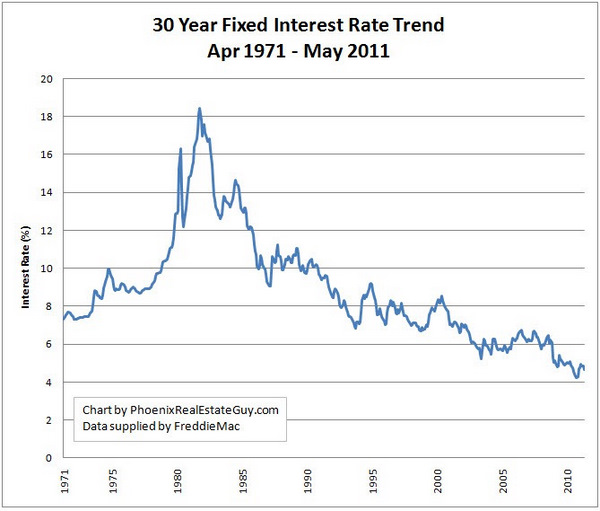The first time “pass” rate of the national loan originator exam has fallen to 69 percent. This is an indication that the test is not too easy. A high pass rate means an exam is too easy. A low pass rate means an exam is too hard. The numbers that tell a different story are the repeat test takers. Test candidates who fail the LO exam the first time and retake the exam pass the exam only 44 percent of the time. The SAFE Mortgage Licensing Act is working the way it was intended.
This blog post is for loan originators seeking help who are trying to pass the test the second, or third time. Test candidates must wait 30 days between tests and if they fail after their third attempt, they have to wait 6 months before taking the test again. I know it sounds unfair, but in all seriousness, not everyone is going to be able to pass this exam. The six month cooling off time is like a forced reflection period for a candidate to either get serious in addressing their repeated fails or get serious about studying. The SAFE Mortgage Licensing Act of 2008 is only the beginning. Over the next decade loan originators will slowly transform from being less like retail salespeople and more like professionals. The loan originator exam will never be as easy as it was in 2010.
I teach the SAFE Pre-Licensing course for new to newer loan originators which is a 20 hour course. I also teach an exam prep course for experienced loan originators and have had the opportunity to interact with hundreds of loan originator students. In this blog post I’d like to share some reasons why folks are not passing the exam so those who need help can identify their challenges and meet or reset their goals. The following reasons are numbered for conversation sake and do not appear in any particular order.
1. One reason why people are not passing the loan originator exam is the same reason why people all over the world don’t pass comprehensive exams: Not enough studying. A 20 Hour pre-licensing course is definitely not enough time to teach and learn all the complex knowledge required to pass the national LO exam. 20 hours could be three, 7-hour days or two, 10-hour days. Take a look at the test content outline. There’s NO WAY an average human, who has never been in the mortgage lending industry, is going to be able to learn let alone understand, memorize and apply this content with only 20 hours of education. One reason the number of classroom hours was set at 20 may have been because during 2010 there were a huge number of experienced LOs who worked at non-depository lenders who needed this course. Two days is plenty of time to spend with an experienced originator but not someone brand new. In the future, expect the pre-licensing hours to be expanded to a full week of education. Until then, some students will have to spend way more time outside of the classroom studying on their own.
 2. “There’s no good study material available”
2. “There’s no good study material available”
NMLS-approved course providers are not allowed to take the test only for the purpose of telling everyone what’s on the test. In fact, we agree to NOT do this. If we’re caught doing this we lose our ability to teach NMLS approved courses! If you think about it, if it were that easy to cheat on the exam then why bother with the SAFE Act? Why not just give anyone who wants a license a license and not test them. The Nationwide Mortgage Licensing System (NMLS) does not provide a study guide book. Instead they encourage test takers to seek out study material from course providers….however, slow down a bit and you’ll see right inside the test content outline, NMLS TELLS YOU WHERE THE TEST QUESTIONS COME FROM. Look at page 3 of this pdf. Those who are seeking good study material don’t have to pay to get it. It’s all available for free. However, that means you’ll have to actually read it. More about reading soon.
3. Wanting the answers/not wanting to study
Loan originators ask their compliance person for the answer when they have a question about Fannie Mae, RESPA, disclosure requirements, etc. So in attacking this exam, LOs expect to call a course provider and have that course provider hand them a set of 100 questions that will be on the exam. And by the way, anyone who claims to “have THE 100 questions you MUST know” is probably wrong. Any list of questions floating around out there will eventually make their way to NMLS and I’m sure they’ll pull those questions. Okay, so maybe you don’t expect the answers but you expect someone to sell you a book that tells you what will be on the exam. That book doesn’t exist either. What about a book that summarizes the test content outline? Yes there are books available and I think those books would be very helpful for some folks but no book will tell you the exact test questions you’re going to get! Relying only on a book is a mistake.
4. “I know the material, I just can’t pass the test.”
It’s possible you don’t know the material. Re-read numbers 1-3. Or perhaps you have test anxiety.
5. Test Anxiety
I have met several LOs who are have a high degree of test anxiety that goes way beyond normal nervousness. Yes, passing the test is important. In their mind, people with high test anxiety go from “not passing” to “living in a van down by the river” in one heartbeat. Test candidates get themselves all worked up so they can’t eat, sleep, think, or do anything let alone actually learn and understand the test content. There’s lots of tips and ideas that have been written about dealing with test anxiety and even a little self-quiz you can take here. One thing the experts agree on is that a person with high test anxiety isn’t going to be able to learn much while studying. If you want to pass the LO exam, you must deal with your anxiety first and foremost before taking any exam prep classes. There is no time in anyone’s classroom to give personalized psychological counseling. Besides, most of the instructors teaching classes whether they’re live or online specialize in mortgage lending not test anxiety. Your challenge is different. Know thyself….pass the test. Maybe your anxiety comes from not wanting to be honest with yourself about a possible learning disability.
6. Maybe you have an undiagnosed learning disability. As I’ve mentioned in other articles, back in the 1970s there were no para-educators available to follow kids around giving rambuncious kids extra support. Instead students survived in other ways. Humans listen and talk at a much faster and higher rate than we read and write. Some LOs are high functioning talkers but low functioning readers. Some people are dyslexic or have other bona fide learning disabilities that they know about but don’t want to deal with the stigma associated with being labeled. Well if you want to pass the LO test this might be that point in your life where you finally are going to have to come out of the closet and get some help. Repeated on purpose: Most of the instructors teaching classes whether they’re live or online specialize in mortgage lending and not learning disabilities. Ask your primary care physician for a referral to a doctor or counselor who specializes in diagnosing learning disabilities in adults. The Nationwide Mortgage Licensing System will make reasonable accomodations for people with documented learning disabilities. See page 14 of the MLO Testing Handbook for more details.
7. Subprime LOs who fell out of the industry during 2008 and are trying to re-enter the business are having a very, very hard time passing this test. The main reason is because they think they already know how to originate and don’t want to spend the time studying or don’t think they have to study so they repeatedly fail the test. Anyone who entered the industry around 2002, left the industry in 2007 or 2008 and only originated subprime received very little compliance training if any. 2011 is a radically different world compared with 2007. If you still think stated income loans should come back, if you still believe that a pay option ARM is “the right product for the right person” and if you think it’s unfair that people can’t use seller downpayment assistance programs please do not re-enter the industry.
8. “The test contains trick questions!”
Actually, the test doesn’t have any trick questions. Test writers try very hard NOT to write trick questions. The reason the test question sound tricky is because LOs are not use to looking up answers and reading the statute. Instead they ask their boss or the compliance person, their processor or the person sitting next to them for the answer and move on. People use language differently in different parts of the U.S. Teaching a class in Oklahoma or Idaho is vastly different compared with teaching in Seattle or Virginia. Test writers can’t use spoken language and coloquialisms from different parts of the U.S. when writing test questions for an exam to be delivered in all 50 states. The only fair way to write test questions is to copy and paste directly from the law. That’s why the test questions sound and look “tricky” but really the trick is on you. If LOs would simply study directly from the law, the test questions would look very, very familiar. Re-read number 2.
9. You’re ESL
English language learners are my best students. Why? Because they are typically more emotionally mature, know good and well that they have to listen, ask lots of questions, and study over and over again to pass this test. ESL LOs…you WILL pass the test. Read more here.
10. The test has too many “situational” questions
So you know RESPA. You know TILA. You’re scoring high on all your practice exams but the test isn’t going to be as easy as just knowing that you have to send out early disclosures within 3 days of the application. Instead the test will contain situational questions that will require you to understand how and also why TILA and RESPA interact with each other. This requires you to look at a test question and understand what information you DON’T need and cast it aside. Only then will you be able to understand what content the test writer is testing you on. This means memorizing test questions is a bad way to study. Instead you’re better off studying the laws and rules that govern mortgage lending. Mortgage loan origination is all situational. These are highly appropriate questions for the exam and I hope we see more in the future.
11. Part Timers
The national LO test sets a bar and asks people who want to originate to show proof of knowledge of a body of information. Loan origination is no longer a sales job. It’s transforming into a profession. It’s really hard to be a part time doctor, lawyer, engineer, dentist, CPA unless that person is entering semi-retirement. The knowledge, skill set, and industry changes are too wide and deep and the consequences of screwing up are too high. Welcome to mortgage lending in 2011. You must be on your game full time or no one will want to hire you. And those companies that do hire part timers are going to have huge liability issues supervising you in 2011 and beyond. Commit to origination as a profession. Now start over and re-read items 1-3. Part timers have a high opinion of their knowledge of mortgage lending and are sometimes too proud to want to hear that they need more basic education on the entire mortgage lending process.
12. Lack of Basic Education
The SAFE Mortgage Licensing Act does not require a high school diploma or equivalent to become a licensed loan originator. Instead, those without a diploma simply must have proof of three years of experience in the mortgage lending industry. Subsequently, the national LO exam will be that barrier to entry for folks who may have a learning disability or folks who may not have the ability to think, reason, and understand above a 9th grade level. Some of the math questions on the exam will require a basic understanding of 9th grade algebra. Some of the questions will require the ability to understand how two federal laws relate to each other and to the consumer. Some people only have the ability to understand one federal law at a time. Mortgage loan origination today requires the ability to multi-think all day long. My recommendation: Finish high school first. The discipline required to obtain a GED will be good practice for studying for the LO exam.
13. Learning Style Not Matched with Study Choice
Visual, auditory, tactile, whole body, emotional…These are all learning styles and passing the test means knowing how you best learn. Learning requires understanding. If you can teach another person something, this is a good sign that you know that concept and will be able to select the correct answer on an exam. Some people have to see pictures. Other students need to hear the content. Sometimes instructors tell stories about legal cases. Stories evoke emotion which triggers long term memory. Sometimes students learn best if they get their whole body involved in the learning process. Everyone is different. Choose a course provider that understands learning styles and find one that matches your particular style. In my experience, most students have a mixed style so find an instructor/course provider that mixes it up for you. One student had me on the phone grilling me with questions about my course for at least 15 minutes. We figured out that we’d be a good match for each other. She attended my course and passed the test the next day. Don’t be afraid to call course providers and ask lots of questions.
Every test candidate is different. Some people listen at a higher/faster rate than they can read and write. Some people need to simply read through 400 sample test questions and that’s all they’ll need. Some people have undiagnosed learning disabilities. If you’ve taken the LO exam and failed, re-evaluate your learning style, the time you’ve spent studying and any of these other ideas and try again. If you still cannot pass the exam ask yourself how much you love the mortgage lending industry because there are other positions available in lending that do not require an LO license. And remember, you can always go work at a depository bank. Bank LOs do not have to pass the exam…..yet. Someday they will.






 Under
Under 
 2. “There’s no good study material available”
2. “There’s no good study material available”